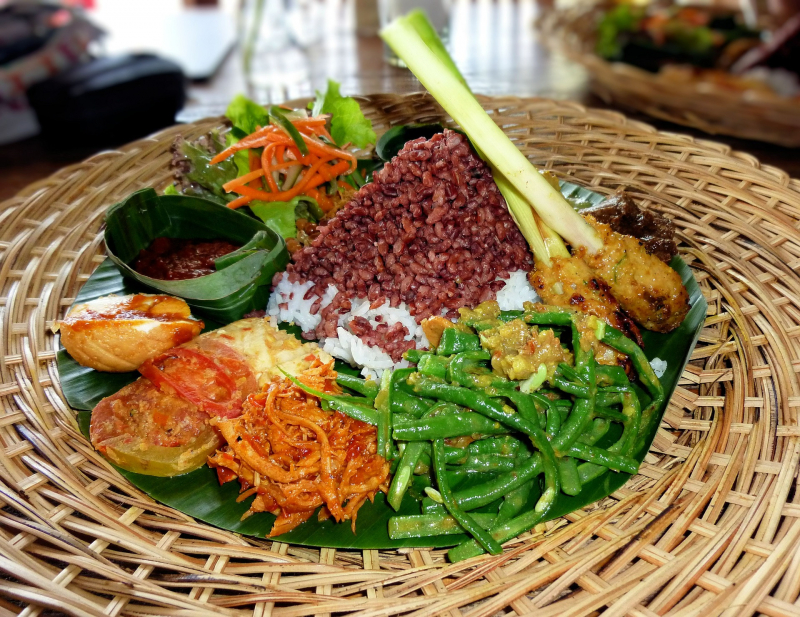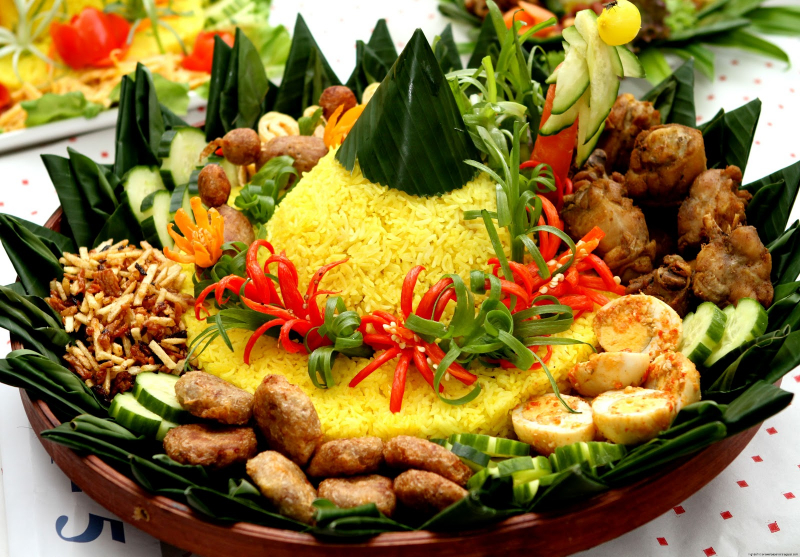Table Manner
Using a spoon, fork, and hand while eating is fairly typical. Unless there is meat on the menu, a knife is rarely found on the table. In a formal setting, the elder will often start the meal first, followed by everyone else.
In Indonesia, there is a practice known as kobokan because the majority of people eat with their hands. A tiny bowl of water called a kobokan is used to wash one's hands before and after eating. Kobokan is typically seen in Sundanese or Padang restaurants. Not only kobokan, but some restaurants also force patrons to eat at the same table even though they are strangers.
The majority of Indonesia's population is Muslim, hence all food must be halal, which is a legal requirement that forbids the eating of alcohol and pork. Restaurants that don't serve halal meals typically display a sign or inform customers that pork is on the menu. During Ramadan, it's crucial to remember that one shouldn't invite a Muslim to join them for a daytime meal. On this day of the month, it is best to avoid eating in their presence as well.












